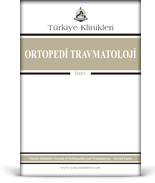Asrımızın en önemli ölümcül hastalıklarından biri olan kanser, hâlen tıptan çözüm bekleyen konuların başında gelmektedir. Günümüzde bu hastalığın 'mekanik' tedavisinde ciddi ilerlemeler yaşandı ve yaşanmaya da devam etmektedir. 'Biyolojik' kelimesini kullanmaktan mümkün olduğunca imtina ettim. Çünkü günümüzde uyguladığımız tedavilerin, bu kelimenin ifade ettiği manayı tam olarak karşılamadığını düşünmekteyim. Mekanik tedaviler ile genel sağ kalım süresinde önemli sayılacak düzelmeler elde edildi. Ancak bütün bu pozitif gelişmeler insanların 'kanser' kelimesinden duyduğu korkusunu bertaraf edemedi. Bu korku, psiko-sosyal hastalıkların ortaya çıkmasına neden oldu. Çünkü 'ölüm zamanını bilmemesi', insanları hayata bağlayan tek gerçek iken, bu kelime ile daha doğrusu bu hastalık nedeni ile artık insan, ölüm zamanını da öğrenmiş oldu. Bu gerçekler göz önüne alındığında, günümüzde uyguladığımız 'mekanik tedavi' ile genel sağ kalım süresini uzatarak bu hastaları tedavi ettiğimizi mi sanıyoruz acaba?
Ayrıca bu kişilerin tedavi süreci içerisinde ve sonrasında, sosyal çevreye tekrardan kavuşturulması bir başka önemli konudur. Bu hastaların 'damgalanması, başkalaştırılması ve sosyal çevreden uzaklaştırılması' gibi durumlar, başka problemlerin ortaya çıkmasına neden oldu. Yani bu hastaların sağ kalım süresini uzattık. Ancak insanın ruhsal yapısını ve sosyal bir varlık olduğunu unuttuk. Bu unutkanlık, kanser tanısı konulmuş hastalarda, kanser tedavisinden çok daha zor psiko-sosyal problemlerin ortaya çıkmasına neden oldu.
Sonuç olarak; kanser tedavisinde yol almak ve bu hastalara yararlı olmak isteniyor ise, bu hastaları 'iki kanatlı' olarak değerlendirmek ve her iki kanadı beraber tedavi etmek gerekir. Bunun için mutlak surette 'Psikososyal ve Fiziksel Rehabilitasyon Destek konseylerinin yasal olarak kurulması ve tümör konseylerine eklenilmesi gerekir. Hastaların tedavi ve takip süreçleri bu iki konseyin ortak kararları ile gerçekleştirilmelidir. Aksi takdirde tüm dünya çok ciddi problemler ile karşı karşıya kalabilir. Bu konseylerin kurulması hem tedavi bazında hem de ekonomik açıdan ciddi yararlar sağlayacaktır. Bu konseylere ve bu tedavi biçimlerine, hükümet politikalarında yer verilmesi inanılmaz ilerlemelere yol açacaktır. Bu ve buna benzer nedenlerden dolayı (bilgilerime göre) dünyada ilk kez ekstremite sarkomlarını anlatan ve şahsımın kaleme aldığı 'Kas İskelet Sistemi Yumuşak Doku Tümörleri' adlı iki ciltlik kitabımda 'Psikososyal ve Fiziksel Rehabilitasyon Destek' bölümü oluşturuldu. Bu konu yine bu konseyi oluşturan eğitimli uzman bilim adamlarımız tarafından kaleme alınarak okuyucuların beğenisine sunuldu.
Son söz, kansere sekonder gelişen psikojenik hastalıklar ve ruhsal instabilitenin, hastalığın nüksünde veya mortal olmasında çok önemli katkısının olduğunu düşünmekteyim. Bu nedenle bu kitap; bu konuya parmak basarak onkologların dikkatini çekmeyi amaçlamıştır. Bu konu üzerinde tecrübelerini esirgemeden bizlerle paylaşan ve bu kitabın yayımlanmasında ciddi çaba gösteren Türkiye Klinikleri çalışanlarına ve diğer emeği geçen tüm arkadaşlarıma saygı ve hürmetlerimi sunarım.
Prof. Dr. Ahmet KAPUKAYA
Editör
Cancer, one of the most important deadly diseases of our century, is still one of the issues that await a solution from medicine.
Today, serious advances have been made in the "mechanical" treatment of this disease and it continues to be experienced. I avoided using the word "biological" as much as possible. Because I think that the treatments we apply today do not fully meet the meaning of this word. Significant improvements in overall survival were achieved with mechanical treatments. However, all these positive developments could not eliminate people's fear of the word "cancer". This fear led to the emergence of psycho-social illnesses. Because "not knowing the time of death" is the only truth that binds people to life, but with this word, more precisely because of this disease, people have now learned the time of death. Considering these facts, do we think we are treating these patients by extending their overall survival with the 'mechanical treatment' we apply today?
In addition, it is another important issue to restore these people to the social environment during and after the treatment process. Situations such as "stigmatization, metamorphosis and isolation from the social environment" caused other problems to arise. So we extended the survival of these patients. However, we forgot the spiritual nature of man and that he is a social being. This forgetfulness caused the emergence of psycho-social problems that are much more difficult than cancer treatment in patients diagnosed with cancer.
As a result, if it is desired to move forward in the treatment of cancer and to benefit these patients, it is necessary to evaluate these patients as "two wings" and both wings should be treated together. For this, "Psychosocial and Physical Rehabilitation Support Councils must be legally established and added to tumor councils. The treatment and follow-up processes of the patients should be carried out by the joint decisions of these two councils. Otherwise, the whole world may face very serious problems. The establishment of these councils will provide serious benefits both in terms of treatment and in economic terms. Including these councils and these forms of treatment in government policy will lead to incredible advances. For these and similar reasons (according to my knowledge), the 'Psychosocial and Physical Rehabilitation Support' section was created in my two-volume book, 'Musculoskeletal Soft Tissue Tumors', which is the first in the world and written by myself. This subject was penned by our trained expert scientists, who also formed this council, and presented to the readers.
Last word, I think that psychogenic diseases and mental instability secondary to cancer have a very important contribution to the relapse or mortality of the disease. For this reason, this book aims to attract the attention of oncologists by touching this issue. I would like to express my respect and respect to the magazine staff and to all my colleagues who have shared their experiences on this subject with us and who have made serious efforts in publication this book.
Prof. Dr. Ahmet KAPUKAYA
Editor







.: İşlem Listesi